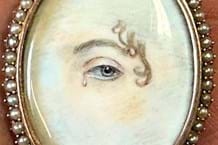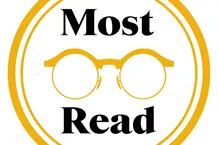The Met said that the Specialist Crime Directorate budget identified the unit as an area where savings could be made over the next two years by looking for private sponsorship to meet the shortfall.
A Scotland Yard spokesman told ATG: “This is part of overall budget cuts for the SCD. Art and antiques was seen as an area where we could get in private money and therefore make savings. If we can find the right sponsor, this can be a success. If the force can continue at full strength this will be to everyone’s benefit. It’s better to do this than to lose the unit completely.”
The overall SCD budget reduction for 2007/8 is 2.2 per cent, and it is anticipated that this will bring £7.9m of savings across the board.
Scotland Yard said budget cuts were needed so the police could focus resources on frontline operational activities. “Where possible, any cutbacks will be limited to support functions,” they said.
Most of the art and antiques unit’s budget goes on staffing costs which run at around £350,000 a year. This means finding sponsorship for £170,000.
Currently discussions involve two interested parties. “The unit has worked closely with museums, auction houses, and insurance companies,” said Scotland Yard. “It therefore has good relationships that it hopes to exploit.”
British Art Market Federation chairman Anthony Browne told ATG he regretted the budget cuts, but recognised the need for the police to prioritise their resources. “It seems a pity as, from my brief experience with them, they do a good job,” he said. “I’m sure it’s not that the police are unwilling to fund the art and antiques squad but, as with any organisation, they have to prioritise where their primary targets are.”
He also pointed out that the government had failed to implement the recommendations it endorsed in the Norman Palmer report in 2000. These included giving greater resources to law enforcement agencies as well as the establishment of a publicly funded database of stolen art. The database, estimated to cost up to £4m a year, fell at the first hurdle after ministers made it clear that there would be no extra funding from central government. The 9/11 attacks and logistical difficulties with linking up to other European stolen databases all but quashed any future hopes of a UK database being set up.
Scotland Yard want sponsors to fund art and antiques unit
THE Metropolitan Police have defended their decision to cut funding to the art and antiques unit by 50 per cent.




